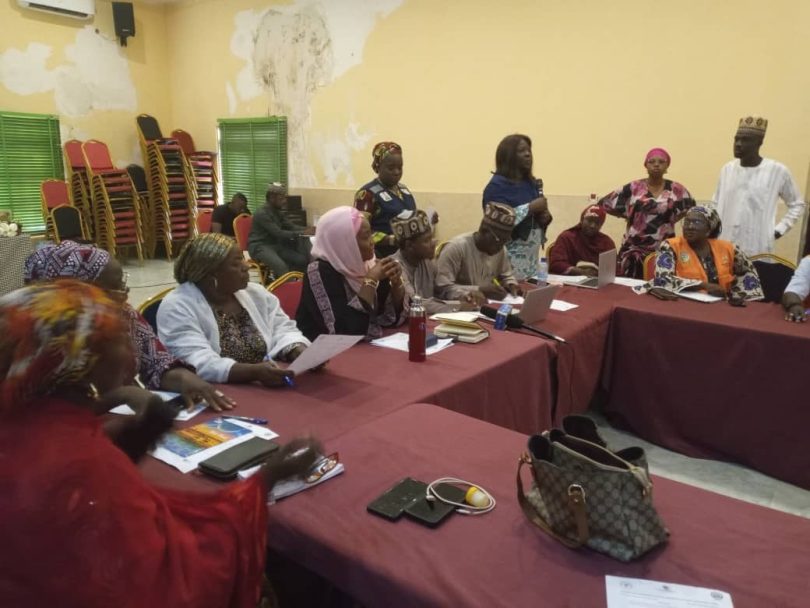By Israel Bulus, Kaduna
The Kaduna State Ministry of Health, in partnership with the Society for Family Health (SFH) under the A360 DISC project, on Wednesday unveiled an integrated demand-generation flipchart and referral tool aimed at improving access to quality reproductive, maternal, newborn, child, adolescent health and nutrition (RMNCAH+N) services, with an emphasis on male involvement across the state.
Speaking during the launch in Kaduna, the A360 DISC Programme Manager for SFH, Anita Hintiya, said the newly adapted flipchart and referral forms were designed to equip healthcare providers and community mobilisers with user-friendly materials for client engagement, improved referral pathways and the promotion of self-care options such as the self-injectable contraceptive, DMPA-SC.
“Our focus is on contraceptive self-care, particularly the DMPA injection,” Hintiya said.
“We work closely with the state government to train providers and empower women to inject themselves and access these services at health facilities. We also build the capacity of demand-generation teams to sustain these interventions.”
She explained that the project addresses gaps in communication and demand creation, adding that Kaduna is pioneering the integrated flipchart now being adopted by other states, including Katsina, Ogun, Oyo, Adamawa and Kwara.
The Permanent Secretary, Kaduna State Ministry of Health, Dr. Aisha Abubakar Sadiq, said the initiative aligns with the state government’s commitment to universal healthcare and improving the well-being of women and children, especially in rural communities.
“Even when you have policy documents, facilities, drugs, and trained health workers, people must be willing to access and utilise the services,” Sadiq noted.
“That is why demand-generation activities are crucial to ensure citizens embrace interventions that can improve their health.”
She added that trained community volunteers serve as critical links between government and households by using the flipchart, which comes in both Hausa and English, to engage residents in one-on-one conversations and illustrate key health messages.
The upgraded flipchart integrates maternal, newborn, adolescent and nutrition services into a single tool, allowing health workers to introduce multiple interventions in one interaction.
Also speaking, SFH Social Behavioural Change Communication Officer, Tenumun Usha, highlighted the benefits of self-injectable contraceptives, noting that women can now receive take-home doses lasting up to one year.
“This saves time and resources and significantly improves their quality of life,” Usha said.
A local government engagement focal person from Kaduna South local government area, Mr. Chindo Danladi, commended the self-care initiative, describing it as a game changer in family planning.
“As a health worker, I was unaware of the full impact of this self-care innovation until SFH came and trained us,” he said.
“With the introduction of self-care injection, we are seeing fewer cases of abandoned babies, while more women are now demanding family planning services.” Danladi stated.

